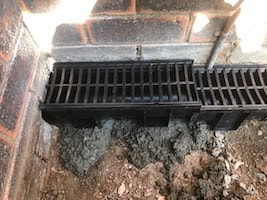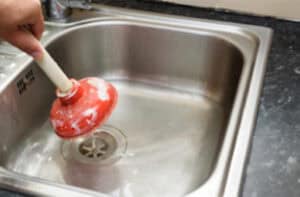Worm farming. I know what your thinking. Why would anyone opt to have a bin full of creepy crawlies in their garden?
Despite it seeming like a really gross idea, there are a surprising number of benefits to having a worm farm.
If you tend to your worm farm properly, it won’t be smelly, there won’t be any gross cleaning involved, and you’ll be doing something great for your garden and the environment.
In this article, we’ll be dispelling any myths about worm farms and explaining what they are, what the benefits are, and how to get started. So let’s jump into things.
What is a worm farm?
A worm farm is exactly what it says on the tin. It’s a farm, for worms.
In a nutshell, worm farms are essentially a box that you place in the garden filled with worms and soil.
The purpose of a worm farm is to help you to reduce household waste and create a natural fertilizer for your garden. It’s very similar to composting, but with worms.
All you have to do is feed food scraps to the worms. The worms will then eat the food and excrete worm tea and castings that can be used as fertilizer.
Now you know a bit more about how worm farms work, let’s take a closer look at the benefits.
Benefits of having a worm farm
There are things that make worm farming worthwhile. Here are some of the main benefits.
It’s an easy way to reduce waste
If you’re concerned about what to do with your organic household waste, worm farming could be the solution for you. Although you can’t feed all of your organic waste to the worms you can feed them common waste items like fruit and vegetable scraps, tea bags and coffee grounds, eggshells, and even small amounts of cardboard and newspaper.
It can help you cultivate a natural, healthy garden
Worm farms yield natural fertilizer that can be used to breathe new life into your garden. This provides a great alternative to shop-bought chemical fertilizers which can be damaging to the environment and can contaminate the water supply in your local area.
It’s a fun alternative to composting
Worm farming is beneficial in the same ways that composting is, but feeding your scraps to worms can be a whole lot more fun. If you are trying to get your children involved in gardening or you enjoy having lots of animals and insects in your garden, worm farming could be a good choice.
It’s environmentally friendly
By feeding organic waste to your worms you’ll reduce the amount of waste that gets sent to landfills. This will have a positive impact on the environment by reducing the amount of harmful gases that are produced by waste decomposing at landfill sites.
How to start a worm farm
Starting a worm farm is fairly easy, all you need is some worms, some soil, and a farm to store them in. Below is a brief overview of what you need to do to get started.
Getting started
First and foremost, you’re going to need a farm to house your worms. Worm farm kits are available online and are fairly affordable. Here are our suggestions of kits to buy:
Both of the worm farms have layered designs, this makes it easier to separate up your farm in order to remove the compost. The top level of the farm is where you’ll place your food scraps and where the worms will go to eat. Usually, the worms will settle in the middle layer of the farm and this is where they’ll do all of their pooping and peeing.
The excrement will then work its way down into the bottom layer and this is where you can collect the nutrient-filled worm tea and using the tap on the bottom of the bin. The castings will be mixed into the top two layers of soil and can be harvested by moving the worms into a different bin or a different part of the bin.
Once you’ve got your farm set up, you can go ahead and buy your worms. Here’s a video that will teach you how to set up your farm and get your worms settled in their new home:
How often to feed the worms
Worm farms like the examples we’ve listed are too small to accommodate all of your household organic waste. You will only need to add a small pile of scraps, to begin with. It’s best to cut your kitchen scraps into smaller pieces and this will help the worms to work through them faster. Check on the bin to see how the worms are getting on.
If it looks like your worms are almost finished with the last pile, go ahead and add some more. If you want an eco-friendly way to get rid of any surplus kitchen waste, you may want to consider starting a compost pile as well as worm farming.
What to feed the worms
Here’s a table of what to feed your worms and what to avoid.
What to feed to the worms | What not to feed to worms |
Fruit and vegetable scraps | Spicy and acidic foods (chili, citrus fruits, onions, and garlic) |
Teabags and coffee ground | Animal feces |
Bread and pasta (in small quantities) | Meat and bones |
Moist newspaper and cardboard | Oily foods (fish, oils, and grease) |
Where to situate your worm farm
Worms are happiest in temperatures of between 18 and 25ºC. If possible, it’s best to keep your worm farm outdoors in a sheltered area. You can keep your worm farm inside if necessary, but be sure to tend to your worm farm often so that you don’t get any nasty smells occurring. A healthy worm farm should have a nice earthy smell.
Worm farming FAQ’s
Want to learn more about worm farming? Here’s a few commonly asked question that might help you on your way.
What is worm compost tea?
Worm compost tea is just a fancy name for the liquid that will be formed at the bottom of your worm farm. It can be collected, diluted in water, and used to fertilize plants in your garden.
What is worm compost?
Worm compost, also known as worm castings or vermicompost is what’s left over after the worms have digested, and pooped out your kitchen scraps. Worm compost can help to improve the quality of soil by providing minerals and increasing water retention.
How much does it cost to start a worm farm?
The price of your worm farm set up will depend on what products and worms you choose. If you choose one of the worm farms we’ve linked above, it should cost more than a few hundred dollars to get set up. After that, it costs nothing, and you get free fertilizer for your garden.


